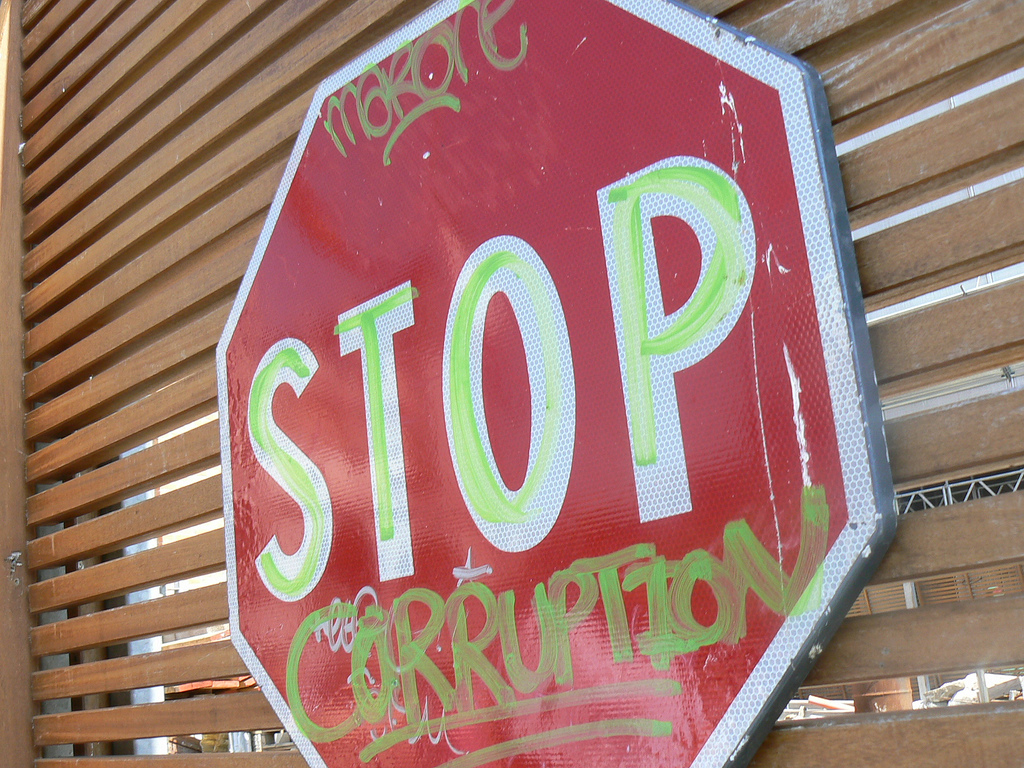The other day, my 10 year-old son asked me how much it costs to be ethical. Not really a surprising question for the son of an ethics professor, but one that has no easy answer. So, how can we measure the impact of doing the right thing?
Contributing to the welfare of others and your own is frankly, a priori, a broad question. If I were to answer my son’s question in a simple way, I would try to turn the question around and instead ask, what happens if I don’t do the right thing? What is the cost of corruption?

On the one hand, anyone can speak freely about differences in perception, and there are studies about the perception of corruption. Yet when we try to apply statistics and real numbers to this phenomenon, its very nature impedes us from accessing those numerical values; its obscurity and lack of transparency leaves no trail to follow, often due to the various and creative means corruption has of further promoting other corrupt practices beyond the monetary (gifts, trips, special favors, etc.).
So what costs does corruption incur? The cost of corruption is much more than financial; it is also social, political, environmental and human:
- Financial: Corruption has a direct impact on the wealth of nations, diverting funds to “private” purposes, instead of to the common good. It also generates an underground economy, dissuading foreign investment (according to Transparency International, losing one index point leads to losing the equivalent of 0.5% of GDP in foreign investment) and encouraging capital flight.
- Social: It also corrodes trust, not only in institutions, but also in people. It generates frustration, apathy, discourages the entrepreneurial spirit, accentuates social inequities and promotes organized crime.
- Political: Corruption is one of the greatest obstacles to democracy and the rule of law.
- Environmental: Unacceptable practices in developed countries are also implemented in developing countries, in addition to the general pillaging of natural resources.
- Human: It damages human nature and creates a rift between human beings and their ultimate purpose.
If we focus just on the financial cost, in the 1990s Business Week published the results of a University of California study that revealed the actual cost of corruption. For example, accepting a bribe or giving in to extortion to speed up licensing procedures or to obtain a public contract led to a three to ten percent increase in fees. In the end, the goods and services subject to corruption were 20 -100% more expensive.
In 2003, the U.N. signed the first international anti-corruption treaty. At that time the Associated Press gathered quotes that illustrated the extent and gravity of corruption in many countries:
“Corruption … has ruined our schools and hospitals [..] It has destroyed our agriculture and industries. It has ‘eaten up’ our roads and jobs. … It has destroyed our society.” Justice Minister, Kenya.
Anthony Cost, The U.N.’s top anti-crime official, made the following observations:
“Zaire and Nigeria, two of Africa’s hardest-hit states, have lost some $5 billion each in the last few years to graft, most of it spirited out of those countries.”
“In Pakistan, an estimated 30 percent of the price of all public works projects goes to kickbacks and bribes.”
“In Bangladesh, corruption eats up a whopping 50 percent of foreign investment.”
In 2004, Daniel Kaufmann, the World Bank Institute Global Governance Director, revealed that throughout the world more than one trillion U.S. dollars ($1,000,000,000,000) were paid yearly in bribes, not including misappropriation of public funds or embezzlement. This figure estimates bribes paid both in rich countries and developing countries.

Kaufmann observed that the total monetary sum of corrupt transactions was just one part of the total cost of corruption, which in and of itself is a major impediment to the reduction of poverty, inequality and infant mortality in emerging economies. Other insights that came out of this study included how in the long run the national incomes of countries that battle corruption and improve the rule of law can increase up to four times. At the same time, the study found that such efforts would lead to a 75% decrease in infant mortality.
In 2009, Transparency International published a report that found that corruption in Ireland cost the state three billion pounds. Meanwhile, in Italy the Court of Auditors confirmed that government corruption cost 60 million euros per year. In the U.K., the National Fraud Authority quantified fraud at 73 billion GBP in 2012. On the European level, in 2013 the E.U. estimates that corruption throughout the 27 member states costs 120 billion euros per year. In Spain, a recent study placed the social cost of corruption at 40 billion euros.
While it is difficult to grasp corruption’s financial impact, these numbers do help to shed light on the gravity of the phenomenon. Thinking about the cost of corruption in relative terms is also enlightening. For example, if we refer back to the figure cited by Kaufmann – $ 1 trillion USD – and we compare it with the $150 million USD in international aid offered for disaster relief following the recent typhoon in the Philippines, the urgent need to combat corruption is quite evident.
Going back to my son’s question, and without losing sight of the larger and higher motives beyond the monetary that justify working towards good, the figures cited earlier do indeed help me to answer his question: Many good things depend on our doing good. By making courageous and honest decisions, we can transform reality and create not just a more just world, but also a happier one.

